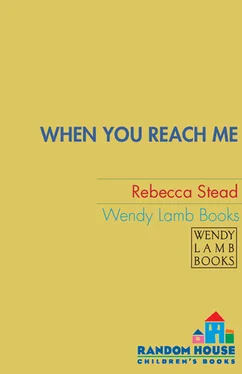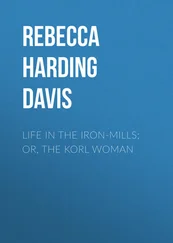When (v5) - Rebecca Stead
Здесь есть возможность читать онлайн «When (v5) - Rebecca Stead» весь текст электронной книги совершенно бесплатно (целиком полную версию без сокращений). В некоторых случаях можно слушать аудио, скачать через торрент в формате fb2 и присутствует краткое содержание. Год выпуска: 2009, ISBN: 2009, Издательство: a cognizant original v5 release october 23 2010, Жанр: Старинная литература, на английском языке. Описание произведения, (предисловие) а так же отзывы посетителей доступны на портале библиотеки ЛибКат.
- Название:Rebecca Stead
- Автор:
- Издательство:a cognizant original v5 release october 23 2010
- Жанр:
- Год:2009
- ISBN:9780375892691
- Рейтинг книги:4 / 5. Голосов: 1
-
Избранное:Добавить в избранное
- Отзывы:
-
Ваша оценка:
- 80
- 1
- 2
- 3
- 4
- 5
Rebecca Stead: краткое содержание, описание и аннотация
Предлагаем к чтению аннотацию, описание, краткое содержание или предисловие (зависит от того, что написал сам автор книги «Rebecca Stead»). Если вы не нашли необходимую информацию о книге — напишите в комментариях, мы постараемся отыскать её.
Rebecca Stead — читать онлайн бесплатно полную книгу (весь текст) целиком
Ниже представлен текст книги, разбитый по страницам. Система сохранения места последней прочитанной страницы, позволяет с удобством читать онлайн бесплатно книгу «Rebecca Stead», без необходимости каждый раз заново искать на чём Вы остановились. Поставьте закладку, и сможете в любой момент перейти на страницу, на которой закончили чтение.
Интервал:
Закладка:
In sixth grade, kids with any money, even just a little, go out for lunch unless something is going on and they won’t let us, like the first week of school, when there was a man running down Broadway stark naked and we all had to eat in the school cafeteria while the police tried to catch him.
Mostly kids go to the pizza place, or to McDonald’s, or, every once in a while, to the sandwich place, which has a real name but which we called Jimmy’s because there was never anyone working there except one guy called Jimmy.
Pizza is the best deal—a dollar fifty will buy two slices, a can of soda, and a cherry Blow Pop from the candy bucket next to the register. That first day together, Annemarie and I got lucky and found two stools next to each other at the counter under the flag of Italy.
I found it slightly gross to eat pizza with Annemarie because she peeled the cheese off her slice like a scab and ate it, leaving everything else on her plate.
But she laughed at my jokes (which I mostly stole from Richard, who is bad at telling jokes but knows a lot of them), and she invited me over to her house after school, which more than made up for it. I would be spared an afternoon of listening to Sal’s basketball. And the laughing man might be asleep under his mailbox by the time I walked home.
Things That Burn
Annemarie’s apartment didn’t involve keys. Instead she had a doorman who slapped her five and a dad who opened the door upstairs.
“Did your dad take the day off?” I whispered.
“No,” Annemarie said, “he works from home. He illustrates medical journals.”
“Is your mom here too?”
She shook her head. “She’s at work.”
Annemarie’s bedroom was about the same size as mine, but it had nice curtains and the walls were completely covered with all kinds of pictures and photographs, which I couldn’t stop looking at. There must have been a hundred of them.
“We’ve known each other for a long time,” Annemarie said, sitting down on her bed, which had some kind of Asian bedspread and about fifty pillows on it.
“Who?”
She blushed. “Oh—I thought you were looking at the pictures of Julia.”
That’s when I noticed that her room was covered with pictures of Julia. Maybe not covered, exactly, but there were a lot of them—the two of them in pajamas, or in the park, or standing together all dressed up outside some theater.
“Knock, knock!” Annemarie’s dad came in with these tiny sausages on a plate. “I’m on deadline,” he said to me. “When I’m on deadline, I cook. Do you like mustard? Try the dipping sauce. I’ll be right back with some apple cider.”
He was back in thirty seconds with a glass of cider for me, but he handed Annemarie what looked like plain water. She didn’t seem to notice.
Annemarie’s rug was spongy and soft, almost like another bed, and I lay down on it. Mustard always makes my lips burn, but I didn’t care. It was worth it.
The Winner’s Circle
Mom is getting very good at the speed round. She almost always gets seven words in thirty seconds now, no matter who is giving the clues and who is guessing.
The second part of The $20,000 Pyramid is called the Winner’s Circle because you have to win the speed round to get there. In the Winner’s Circle, the celebrity partner gives the clues and the contestant has to guess—not words, but categories. So if the celebrity says “tulip, daisy, rose,” the contestant would say “types of flowers.”
That’s an easy one. Some of the categories are harder to figure out, like “things you recite” (poetry, the Pledge of Allegiance) or “things you squeeze” (a tube of toothpaste, someone’s hand).
The last category is always incredibly hard to guess—maybe “things you prolong” or “things that are warped.” The last category is what stands between the contestants and the big money, and Mom says it doesn’t help that some of these celebrity partners are as dumb as a bag of hair.
If Mom wins her first speed round and correctly guesses all the categories in the Winner’s Circle, she’ll win ten thousand dollars. If she wins a second speed round, the Winner’s Circle is worth fifteen thousand dollars. And if she wins a third time, she’ll go for twenty thousand dollars. That’s what I mean by big money.
During the speed round, you can point or gesture all you want. If the word is “nose,” you can point to your nose. But the rules change in the Winner’s Circle. No hand movements of any kind are allowed, which is why I’m tying Richard’s arms to my desk chair. I’m using the clove hitch.
“You’ve got it reversed again,” Richard says, watching me. “That end should go through the loop…. That’s it—right!”
Mom is looking at us like we’re crazy. “Is this really necessary?”
“She has to practice,” he tells her. “For when you win the sailboat.”
Mom rolls her eyes.
I get my cards ready—I’ve written everything out in fat block letters so Richard can read them from a distance. I’m going to hold them up one at a time behind Mom’s head, where Richard can see them. In the real show, they have these big panels that spin around behind the contestant’s head to reveal the next category, but obviously we don’t have that kind of technology.
Louisa’s lunchtime notes are good—she’s even written down what Dick Clark says at the beginning of every Winner’s Circle. He always uses the same words: “Here is your first subject…. Go.”
We set the egg timer for one minute. Mom has to guess the names of six categories before it goes off. “Here is your first subject,” I say, trying to sound like Dick Clark. “Go.” I hold up the first card so Richard can see it.
The card says “things you climb.” Richard nods and starts giving Mom clues.
“A jungle gym, a mountain …”
“High things?” Mom guesses.
Richard shakes his head. “Um … stairs …”
“Things that go up!” she yells.
He shakes his head again. “… a ladder …”
“Things you climb!”
“Ding!” I say, and hold up the next card.
“Okay,” Richard says. “Paris, cheese, wine …”
“Fancy things!” Mom yells. “Romantic things!” … fries …
“French things!”
“Ding!” Next card.
“A pillow,” Richard says. “A kitten.”
“Soft things?”
“… a cotton ball…”
“Puffy things—fluffy things!”
“Ding!” Next card.
“A baby carriage, a shopping cart…”
“Things that carry things?” Mom guesses. “Things with wheels?”
Richard shakes his head, thinks, and says, “A button.”
“Things you push!”
“Ding!”
The egg timer goes off. We all look at each other—Mom has only guessed four of the six categories. No one says anything.
“It’s okay,” Mom says finally. “We still have two more weeks.”
Things You Keep Secret
It was a while before I realized that the kid who punched Sal went to our school. We were working on our projects for Main Street, which is a scale model of a city block that we’re constructing in the back of our classroom. Mr. Tompkin’s class studies buildings every year. Mom says he’s a frustrated architect.
“Why is he frustrated?” I asked.
“It’s complicated.” She said it had to do with the war. “Teachers didn’t have to go fight in Vietnam. So a lot of young men who didn’t want to fight became teachers.”
Instead of what they really wanted to be, she meant.
Jay Stringer, who is a twelve-year-old genius and the head of the Main Street Planning Board, had already built an entire cardboard building, complete with fire escapes and a water tower, and he’d just started two phone booths that he said would have tiny doors that folded open and closed.
Читать дальшеИнтервал:
Закладка:
Похожие книги на «Rebecca Stead»
Представляем Вашему вниманию похожие книги на «Rebecca Stead» списком для выбора. Мы отобрали схожую по названию и смыслу литературу в надежде предоставить читателям больше вариантов отыскать новые, интересные, ещё непрочитанные произведения.
Обсуждение, отзывы о книге «Rebecca Stead» и просто собственные мнения читателей. Оставьте ваши комментарии, напишите, что Вы думаете о произведении, его смысле или главных героях. Укажите что конкретно понравилось, а что нет, и почему Вы так считаете.












